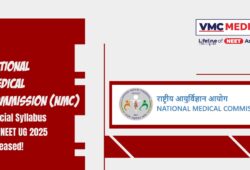Building a Strong Academic Foundation: Tips for Students
 Posted On
Posted On
347 total views, 2 views today
As students advance through their educational journey, maintaining a strong grasp of foundational knowledge becomes crucial. Often, we overlook the importance of revisiting past material, which can lead to gaps in understanding that affect future learning. To ensure academic success and a robust educational experience, it’s essential to continuously reinforce and build upon previous knowledge. Here are several strategies to help you consolidate your academic foundations effectively.
A Strong Early Learning Base
Just as a sturdy building requires a solid foundation, a strong early learning base is vital for academic and future career success. Foundational knowledge from previous courses is not only significant but indispensable for thriving and adapting to higher learning standards. Revisiting and strengthening this foundation is key to long-term academic and professional achievements.
Why Studying the Basics Again Matters
A strong foundation serves as a cornerstone for a successful career and lifelong learning. However, students often struggle to build this foundation due to a lack of awareness and guidance. One highly effective method to fortify this foundation is by revisiting previous years’ syllabi. By doing so, students can reinforce their understanding and ensure they are well-prepared for advanced concepts.
Practical Tips for Building a Strong Academic Foundation
What we do today significantly impacts our future. To ensure a solid academic growth trajectory, it’s crucial to periodically revisit and revise foundational concepts. Here are some practical tips to help you strengthen your academic base:
- Regular Revision: Dedicate specific times each week to review material from previous years. If you are in 10th grade, spend time revising the 9th-grade syllabus. Similarly, if you’re in 11th grade, go over the content from both the 9th and 10th grades. This practice ensures that foundational knowledge remains fresh and solid.
- Step-by-Step Learning: Academic growth is a gradual process, starting from basic understanding to advanced knowledge. Regularly revisiting foundational concepts helps bridge gaps and reinforces learning, making it easier to grasp more complex topics later on.
- Utilize New Perspectives: As you grow older, your cognitive abilities and perspectives evolve. Revisiting previous material with a more mature mindset can provide deeper insights and a better understanding of concepts. This enhanced comprehension strengthens your foundation and aids in long-term retention.
- Dedicated Study Hours: Allocate 3 to 4 hours each week specifically for revising old material. This time investment is crucial for reinforcing foundational knowledge and ensuring that it supports your current learning effectively.
- Integrated Learning: Rather than focusing solely on current curriculum content, integrate foundational revisions into your study routine. This holistic approach promotes a well-rounded education and prepares you for future academic challenges.
The Long-Term Benefits of Revising Old Material
Revisiting and reinforcing foundational knowledge has numerous long-term benefits. As students mature, they develop a greater capacity for understanding and retaining information. Revising old material with this enhanced perspective leads to a more profound and comprehensive grasp of subjects, which in turn facilitates better understanding of new, advanced topics.
Additionally, revising previous syllabi helps create a lasting impression of the topics on your memory. This long-term retention is invaluable for academic success and practical application in future studies and careers. By continuously reinforcing foundational knowledge, students can achieve a higher level of academic excellence and be better prepared for future learning opportunities.
Preventing Academic Decline
Maintaining a strong academic foundation prevents the decline of academic strength over time. A well-rounded education, built on a solid foundation, enables students to maximize their learning potential and continuously upgrade their knowledge. By revisiting and reinforcing previous material, students can ensure that their academic skills remain sharp and relevant.
Hands-On Exploration and Timely Revision
Engaging in hands-on exploration and timely revision of previous material is essential for preparing students for new learning experiences. Proper dedication to reviewing past syllabi helps young learners thrive and reach their full potential at every stage of their academic and professional journeys. This approach promotes a deeper understanding of subjects and fosters lifelong learning.
Closing Thoughts: Embrace Continuous Learning
To build a strong academic foundation, students must embrace the concept of continuous learning. Revisiting and reinforcing prior knowledge is a critical part of this process. By dedicating time to review old material, integrating foundational revisions into your study routine, and leveraging new perspectives as you grow, you can ensure a solid and lasting educational base.
Incorporating these strategies into your academic routine will not only strengthen your foundational knowledge but also enhance your ability to learn and adapt to new challenges. A robust foundation is the key to academic and professional success, and by prioritizing continuous learning, you can achieve your full potential. Investing in your foundational knowledge today will pave the way for a brighter, more successful future. Make the effort to revisit and reinforce past material, and you’ll be well-prepared to tackle advanced concepts and excel in your academic and professional endeavors.




